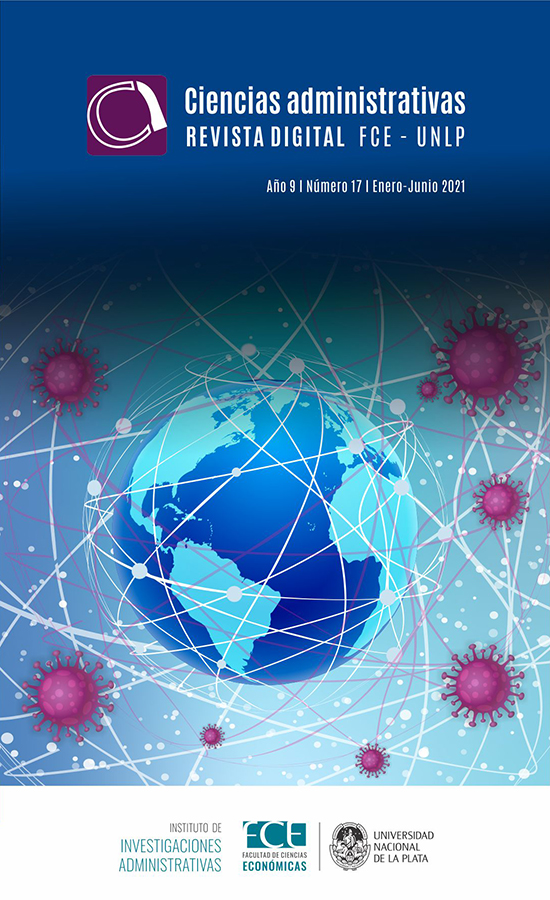Knowledge management and the 2030 agenda for sustainable development in the United Nations context
DOI:
https://doi.org/10.24215/23143738e077Keywords:
2030 agenda for sustainable development, knowledge management, United NationsAbstract
The United Nations constitutes the global framework for most of the international activities on our planet, and it has been progressively exposed to more significant challenges involving an increasing demand for knowledge to accomplish its mission. Hence, from an analytical perspective, this work presents some reflections on the state of knowledge management in the UN and its impact on the fulfillment of the 2030 Agenda for Sustainable Development. The latter may be the biggest challenge in terms of knowledge that the United Nations has ever faced since its foundation. The importance of this study lies in the fact that it explores and provides information on a subject that has not been widely studied. The main conclusion is that, although some progress has been made in this field within this organization, the results have not reached the expected levels yet mainly due to the absence of a joint and integrated knowledge management strategy.
Downloads
Metrics
References
Boyes, B. (2017). Improving knowledge management in the United Nations System. https://realkm.com/2017/11/10/improving-knowledge-management-in-the-united-nations-system/
Dimitriu, P. (2016). Knowledge Management in the United Nations System. Joint Inspection Unit, United Nations. https://www.unjiu.org/sites/www.unjiu.org/files/jiu_document_files/products/en/reports-notes/JIU%20Products/JIU_REP_2016_10_English.pdf
Franklin, E. B. (1997). Organización de Empresas. McGraw-Hill.
Glovinsky, S. (2017). How Knowledge Management Could Transform the UN. Development System. Future United Nations Development System. Briefing 45. https://futureun.org/media/archive1/briefings/FUNDS_Brief45_KnowledgeManagement_Feb2017.pdf
Guterres, A. (2018). The Sustainable Development Goals Report. United Nations.
https://unstats.un.org/sdgs/files/report/2018/TheSustainableDevelopmentGoalsReport2018-EN.pdf
Ki-Moon, Ban (2015). The Millennium Development Goals Report 2015. United Nations. https://www.undp.org/content/undp/en/home/librarypage/mdg/the-millennium-development-goals-report-2015.html
Larrabure, J. L. (2007). Knowledge management in the United Nations system. Joint Inspection Unit, United Nations. https://www.unjiu.org/sites/www.unjiu.org/files/jiu_document_files/products/en/reports-notes/JIU%20Products/JIU_REP_2007_6_English.pdf
Nonaka, I. (1991). The knowledge-creating company. Harvard Business Review, (July-August 2007). https://hbr.org/2007/07/the-knowledge-creating-company
Ricardo, M. (2005). Procedimiento de diagnóstico para la implementación de sistemas de gestión del conocimiento (Unpublished master’s thesis). Universidad de La Habana, Cuba.
United Nations (2015). Transforming our world: the 2030 Agenda for Sustainable Development. A/Res/70/1. https://unctad.org/meetings/en/SessionalDocuments/ares70d1_en.pdf
Downloads
Additional Files
Published
How to Cite
Issue
Section
License
Those authors who have publications with this journal, agree with the following terms:
a. Authors will retain its copyright and will ensure the rights of first publication of its work to the journal, which will be at the same time subject to the Creative Commons Atribución-NoComercial-CompartirIgual 4.0 Internacional (CC BY-NC-SA 4.0) allowing third parties to share the work as long as the author and the first publication on this journal is indicated.
b. Authors may elect other non-exclusive license agreements of the distribution of the published work (for example: locate it on an institutional telematics file or publish it on an monographic volume) as long as the first publication on this journal is indicated,
c. Authors are allowed and suggested to disseminate its work through the internet (for example: in institutional telematics files or in their website) before and during the submission process, which could produce interesting exchanges and increase the references of the published work. (see The effect of open Access)





































